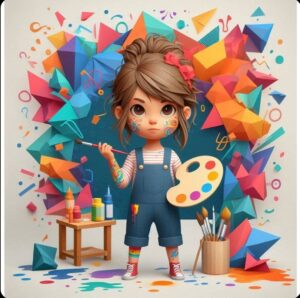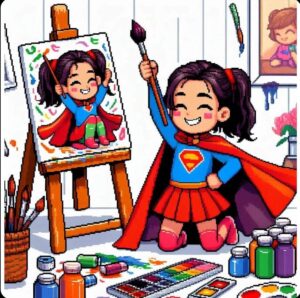


Understanding whether your child is a creator or a doer can help you nurture their unique strengths and guide their development effectively. Here’s how you can identify and support these traits:
Identifying a Creator
Creators are imaginative, innovative, and often enjoy activities that involve making something new. They might show a strong interest in art, writing, music, or inventing things. You might notice your child spending hours drawing, building with blocks, or coming up with stories. Creators are often curious and enjoy exploring new ideas and possibilities.
Identifying a Doer
Doers, on the other hand, are action-oriented and practical. They prefer hands-on activities and enjoy tasks that have clear, tangible outcomes. Doers might excel in sports, enjoy helping with household chores, or show a keen interest in activities like cooking or gardening. They are often goal-driven and find satisfaction in completing tasks and seeing immediate results.
Supporting a Creator
To support a creator, provide them with ample opportunities to express their creativity. Encourage them to take up hobbies like painting, writing, or playing a musical instrument. Offer them materials and space to create, and celebrate their unique ideas and projects. It’s also beneficial to expose them to various forms of art and creativity, such as visiting museums or attending performances.
Supporting a Doer
For a doer, it’s important to provide opportunities for them to engage in physical and practical activities. Encourage them to participate in sports, help with DIY projects, or take on responsibilities that involve planning and execution. Recognize their achievements and provide them with challenges that allow them to use their skills and see the results of their efforts.
Balancing Both Traits
While children may naturally lean towards being a creator or a doer, it’s beneficial to encourage a balance of both traits. Creators can benefit from learning practical skills and seeing their ideas come to life, while doers can enhance their problem-solving abilities through creative thinking. By nurturing both aspects, you can help your child develop a well-rounded skill set that will serve them well in various aspects of life.
Understanding and supporting your child’s natural inclinations can help them thrive and find joy in their activities, whether they are creating something new or getting things done.
